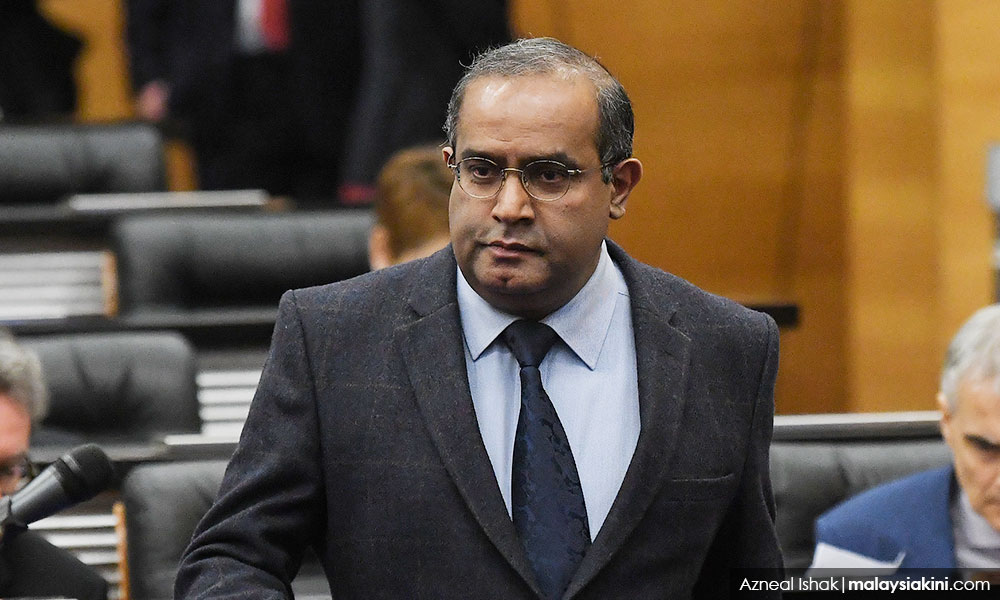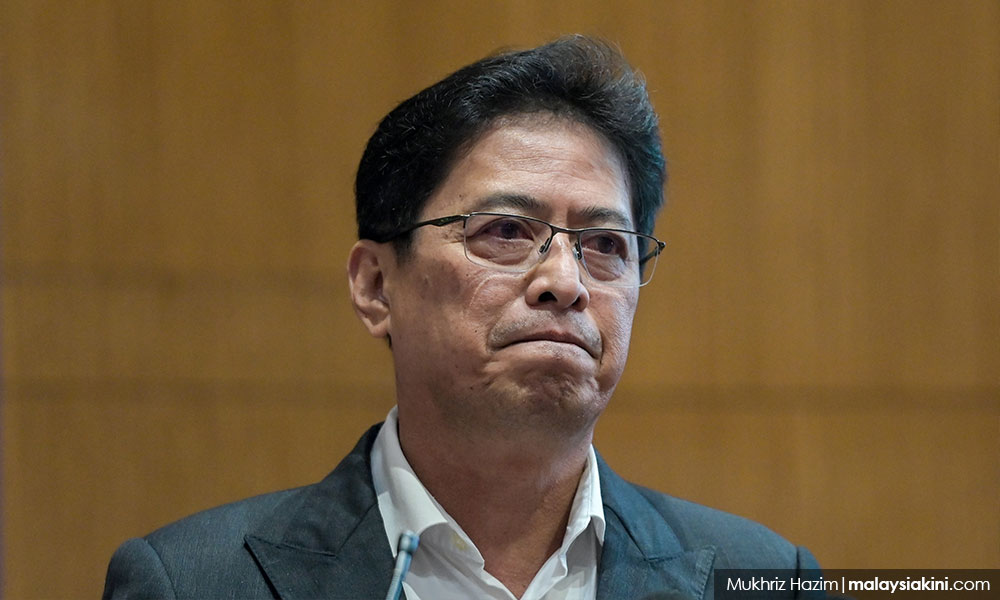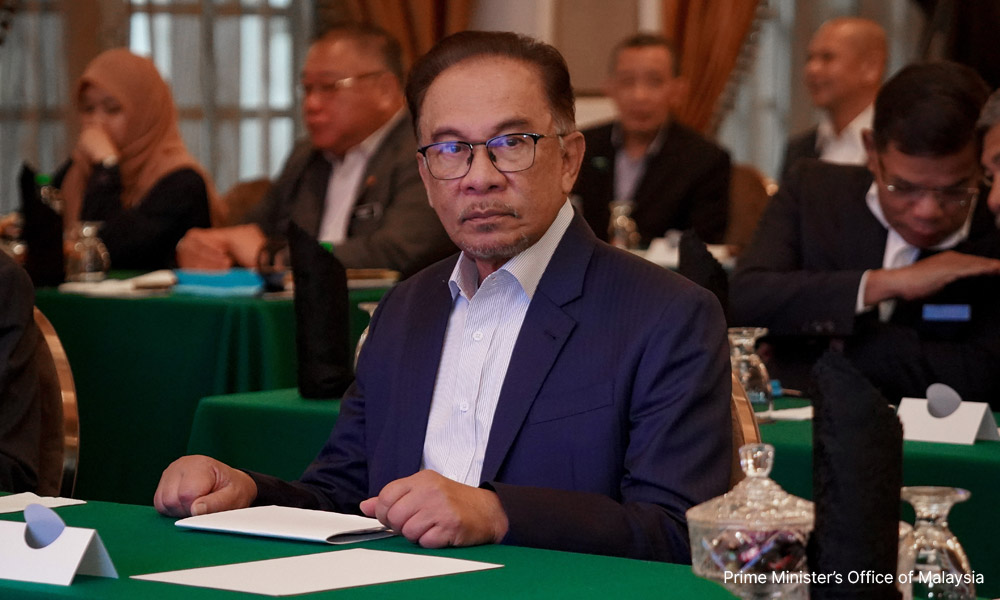Earlier this week, Prime Minister Anwar Ibrahim issued a directive to cabinet members to go through the 2021 Auditor-General’s Report and act on its recommendations to plug the leakages of financial resources from the government’s coffers.
While this move was deemed a good start by many, several good governance experts have weighed in on how reforms on several levels are needed to combat the issue.
Speaking to Malaysiakini, political economist Edmund Terence Gomez opined that institutional reforms were needed within the government to solve plug leakages in the long term.
He said this would include a reconstruction of the government to bring about greater transparency in governance.
Elaborating, Gomez noted numerous past scandals that occurred during the procurement process of projects under the purview of ministers who are given control over other financial institutions.
“The cabinet is a very powerful institution, which links to a range of public institutions to implement projects under a policy’s name. An example would be 1MDB, which involved a GLC linked to several other institutions such as the SRC.
“Projects are being approved by cabinet members themselves who have control over financial institutions.
“So, while it is important what Anwar is saying (to go through the auditor-general’s report), we need to institutionalise reforms to ensure this does not happen again,” he said.

Gomez particularly noted abuse of funds during the procurement process of projects through off-budget expenditures, which allows cabinet members to implement projects at a faster pace.
“The off-budget system has been persistently abused by the cabinet to shield from the public how projects are funded.
“No government in the past has moved to act on this matter because off-budget expenditures allow for a cabinet to implement projects quickly.
“And yet, it shields the public from government expenditure as well as debts accumulated from public agencies,” he said.
Stronger enforcement needed
Meanwhile, Institute for Democracy and Economic Affairs (Ideas) chief executive officer Tricia Yeoh agreed that institutional reforms needed to take place to prevent plug leakages.
She said stronger enforcement and punitive measures were needed within the cabinet.
“It is not sufficient for ministers to just scrutinise the report. They may be able to address specific incidents of concern mentioned in the report, but what about mitigating future occurrences?” she questioned.
Both Gomez and Yeoh agreed that reforms were also needed within the MACC, which currently falls under the purview of the prime minister.
“The MACC has seldom been able to act effectively in checking the scale of corruption occurring in government as exposed by the auditor-general’s report.
“There is a need for it to make it a truly independent institution. Currently, it has a totally arm’s length relationship with the Executive.
“Secondly, the appointment of the MACC chief commissioner is also done by the prime minister, which is a process that needs to be changed,” said Gomez.
Gomez questioned why reforms in the MACC have not taken place despite last year’s scandal involving its chief commissioner.
“It is one of the first things he (Anwar) should have done. If he is serious about the issue (of plug leakages) then this is something he must look into.
“The MACC should not be taking its cue from the prime minister’s office, which is probably why there has not been enough accountability on the part of those who have abused power as exposed in the auditor-general’s report,” he added.
MACC chief commissioner Azam Baki drew criticism over his ownership of 1,930,000 shares in Gets Global Berhad (previously KBES Berhad) on April 30, 2015, worth around RM772,000 at the time.

His shareholding in Gets Global Berhad went down to 1,029,500 as of March 31, 2016, worth around RM340,000 at the time. He also held 2,156,000 warrants in Excel Force MSC Berhad in March 2016.
The share ownership in 2015 and 2016 had raised questions on whether it was commensurate with his income as a public servant and conflict of interest concerns.
Azam claimed the shares were not his but purchased by his brother in his name, prompting the Securities Commission (SC) to also get involved over the possible misuse of his trading account.
Call for tabling of two bills
Meanwhile, Center to Combat Corruption and Cronyism (C4) deputy chief executive officer K Sudhagaran Stanley called for the tabling of two parliamentary bills in the next parliamentary session.
The first, he said, is the tabling of a Procurement Bill, which has already been laid out in the National Anti-Corruption Plan (NACP) under Strategy 3.
“The act was supposed to be tabled back in 2019 under the then Pakatan Harapan government, as promised by the then finance minister Lim Guan Eng. However, this did not materialise.
“The NACP Progress report in 2019 and 2020 reported that the Finance Ministry had already drafted the legislation and conducted a stakeholder engagement session and that the Act is expected to come into force by the year 2021.
“What we have seen here is empty promise after empty promise made by all previous three governments,” he told Malaysiakini.
The second bill of utmost importance, said Stanley, was the tabling of the Ombudsman Bill which he claimed would send a strong message down to the civil service that the government is serious in its reform agenda and will hold those responsible for the wastage of public funds accountable.
Ombudsman Malaysia is an impartial independent body to solve public complaints against government agencies, first approved by the then-Harapan cabinet in 2019 as part of its reform initiatives.

“Both the procurement bill and ombudsman bill would help address the issue of fund leakages holistically.
“Anwar has the responsibility now to see this through and ensure the NACP is implemented truthfully without delay immediately.
“All eyes are on him to see if he really is going to bring forward reforms to this important area that needs urgent attention,” he added.
Transparency International Malaysia (TI-M) president Muhammad Mohan, on the other hand, also recommended that cabinet ministers should adopt a KPI to address all the audit findings in their ministries and eliminate any forms of wastage, corruption or non-compliances in their ministries.
He said one of the reasons for Malaysia’s score deterioration in TI-M’s Corruption Perception Index was due to the government’s failure in showing commitment to addressing the issues raised in the auditor general’s report.
“We hope this problem can be addressed soon under the leadership of Anwar,” he added. - Mkini



No comments:
Post a Comment
Note: Only a member of this blog may post a comment.